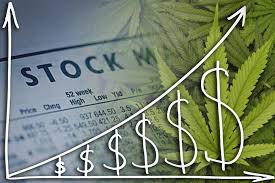U.S. Stocks, Led by Tech, Post Their Best Quarter in Nearly a Decade

U.S. stocks finished their best quarter in nearly a decade on Friday, as several clouds hanging over the financial markets at the end of 2018 dissipated enough to prompt a strong rebound for most shares.
The S&P 500 closed Friday at 2834.40, up 0.7% on the day and up 13.1% for the first quarter of 2019. It marked the strongest quarter for the benchmark stock index since the third-quarter of 2019, when stocks were recovering in the wake of a global financial crisis that led to the Great Recession. It was also the best first-quarter for the index since 1998.
The Dow Jones Industrial Average, meanwhile, rose 11.2% in the first quarter, while the Nasdaq gained 16.5%, according to Yahoo Finance.
As often happens with stock rebounds, smaller-cap stocks outperformed the broader market, with micro-cap stocks gaining more than 20% and large-cap stocks rising 13%. Among the S&P 500’s sectors, information technology (+18.2%), real estate (+16.8%), and energy (+15.6%) performed the best, while health care (+4.9%) and financials (+7.6%) underperformed the overall market.
Among large-cap stocks in the S&P 500, some of the strongest gains were seen by chipmakers such as Xilinx, AMD, and Nvidia, up 50%, 43%, and 35%, respectively. General Electric, which is undergoing a turnaround, gained 42%, while Netflix advanced 39%. Among mid-caps, beauty-supply company Coty rose 81%, Chipotle Mexican Grill gained 69%, and Xerox rose 63%.
Not all stocks enjoyed the broad-based rebound in the quarter. Kraft Heinz declined 25% after slashing dividends in the wake of disappointing earnings, while drugmaker Biogen fell 21%. Macy’s dropped 19% and CVS Health fell 18% as large retail chains continue to struggle in the era of Amazon and e-commerce.
2019’s first quarter erased most of the losses posted during the previous quarter. The Dow slumped 18.8% between Oct. 3 and Dec. 24 of 2018, amid signs that the Federal Reserve would continue to raise interest rates through 2019 and the threat of a looming U.S.-China trade war. That dramatic selloff cause American households to lose a collective $ 4.6 trillion in the value of their stock holdings during the fourth quarter.
Starting in January, the clouds that hung over the economy and the financial markets began to clear up, with trade tensions between China and the U.S. easing somewhat and the Fed signaling this month it’s unlikely to raise rates at all this year. Those developments, coupled with a sense that the late-2018 selloff had been overdone, powered this quarter’s rebound.
“The irrational moment of December was just that, a moment driven by tax selling, algorithms and people being extremely emotional about the headlines,” said Phil Blancato, CEO of Ladenburg Thalmann Asset Management.
For Blancato, that serves as a warning that the rally may not last much longer. “The economy is not strong enough to drive a 12% return on the stock market in an environment like this.”

